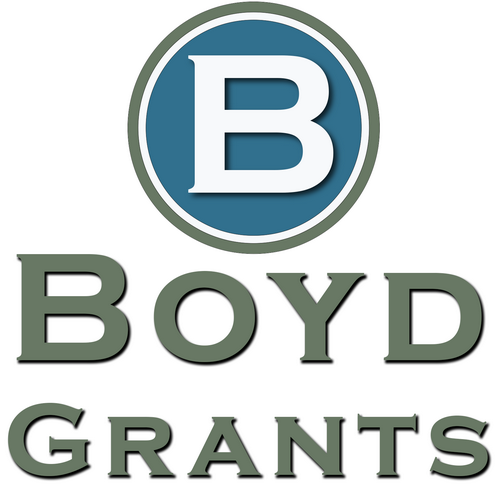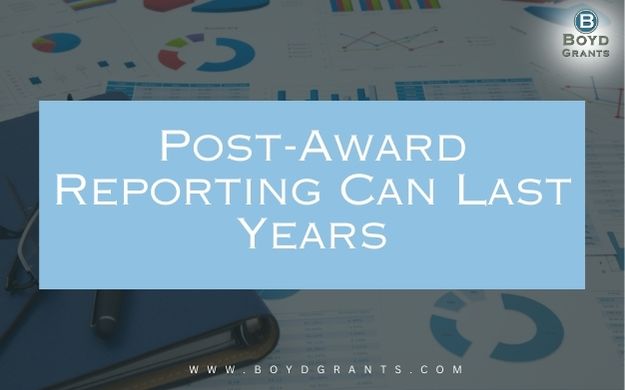Winning a grant is a major milestone, but the work doesn’t stop when the grant term ends. In fact, your responsibilities may extend for months—or even years—after the funding period concludes. Many funders require post-award reporting to track long-term outcomes, ensuring that the project’s impact is sustained and that the grant funds were used effectively. This type of reporting often lasts beyond the project’s official end date, and it’s essential to be prepared.
By planning for long-term reporting now, you can avoid scrambling to pull together data and documentation later. Here’s why post-award reporting is so important and how you can build the systems necessary to handle it effectively.
Why Post-Award Reporting Matters
Funders want to ensure that their investment continues to produce measurable results well after the grant period has ended. They want to know if the outcomes you promised in your proposal are still being achieved, and whether the project has sustained its impact over time.
Many grants require a formal process for tracking these long-term results. Some funders may ask for annual or semi-annual progress reports, even years after the initial award. These reports are typically focused on measuring how the project’s outcomes align with the goals set in the original proposal, and they often include updates on key performance indicators (KPIs), financial reports, and qualitative assessments.
Post-award reporting can be just as important as the work done during the grant term itself because it demonstrates that the project has long-term value and that the grant funds have been used wisely.
1. Ensures Accountability and Transparency
Even after the grant term is over, funders expect to see how the project continues to meet its objectives and contribute to the community. Regular reporting helps maintain accountability and ensures that the project’s results are in line with what was originally promised. Funders want to know that the outcomes you achieved during the grant term are not one-time successes but are sustainable and measurable over time.
2. Helps with Future Funding Opportunities
When you demonstrate strong post-award reporting, you not only fulfill your current obligations but also build credibility for future grant opportunities. Successful long-term reporting proves that you can effectively manage a project beyond its initial implementation phase. This can help you secure additional funding or gain support from new partners, as it highlights your organization’s ability to deliver results that have lasting impact.
3. Provides Insights for Program Improvement
Ongoing tracking and reporting give you valuable insights into the long-term effectiveness of your project. By keeping a close eye on progress, you can identify areas that may need improvement or adjustments. This reflection can help you refine your project’s approach and strategies, ensuring that the work continues to evolve in a positive direction.
Key Considerations for Long-Term Reporting
To avoid scrambling when it’s time to submit those post-award reports, it’s critical to have a system in place that enables you to track data over the long term. Below are some key considerations to help you prepare for the extended reporting period:
1. Maintain High-Quality Data
To ensure that your long-term reports are accurate and credible, it’s essential to maintain high-quality data throughout the grant term and beyond. This means putting processes in place to consistently collect, store, and update data, even after the official grant period has ended. Make sure your data collection methods are standardized, and that the data you gather is reliable and well-documented.
It’s also a good idea to create a central repository for data storage that is easily accessible for future reports. This makes it easier to retrieve the necessary information when it’s time to submit your post-award updates.
2. Staff Understanding of Long-Term Reporting
Post-award reporting may not be top of mind for staff when the grant is wrapping up, but it’s critical that everyone involved in the project understands their ongoing responsibilities. Ensure that staff are aware of the reporting requirements before the grant ends and that they have a clear understanding of what will be expected of them in the future. This includes understanding how to track long-term outcomes, where to store data, and how to communicate results effectively.
Training your team on post-award reporting ensures that everyone is aligned and that no critical information is overlooked.
3. Proper Record Retention
Many funders have strict requirements for record retention, and it’s essential that you keep all relevant documentation for the duration of the post-award reporting period. This includes financial records, data collection forms, and any other supporting materials that demonstrate how grant funds were spent and how outcomes were achieved.
Establish a record retention policy to ensure that you comply with funder guidelines and can easily access records if requested. This could involve keeping digital files backed up in a secure location, as well as maintaining physical records when necessary.
4. Build Capacity for Long-Term Tracking
Establishing capacity for long-term tracking and reporting at the outset of your project will save you time and energy in the future. Consider using project management tools or software that allow for easy tracking of outcomes and data. If you’re managing multiple grants, a centralized system can help you stay organized and on top of reporting deadlines.
Also, think about the staffing needs for long-term reporting. If you don’t already have the necessary personnel, you may need to allocate resources for a person or team to focus on this task post-grant. Building this capacity into your initial planning can prevent any delays or issues in the future.
How to Plan for Post-Award Reporting from the Start
To avoid scrambling when the post-award reporting period begins, make sure your grant management plan includes the following elements from the outset:
- Tracking Plan: Identify the data you’ll need to track long-term outcomes, and make sure your project has a system in place to consistently gather and store this information.
- Staff Responsibilities: Define who will be responsible for long-term reporting, including data collection, analysis, and communication with funders. This ensures everyone knows their role in the post-award period.
- Timeline and Milestones: Establish a timeline for when post-award reports are due, and include milestones for checking progress on long-term outcomes. This helps ensure that you’re meeting reporting deadlines.
- Communication Plan: Develop a plan for maintaining communication with funders during the post-award phase. Keeping funders updated on outcomes and challenges shows your commitment to transparency.
While it may seem like the work ends once a grant term finishes, the reality is that post-award reporting can last years. Proper planning during the proposal stage for tracking, data management, and long-term reporting ensures that you are prepared to meet funders’ expectations well after the initial funding period ends.
By building systems for maintaining data quality, retaining records, and involving your team in the long-term process, you can avoid future headaches and ensure that your project continues to thrive even after the grant period concludes. Strong post-award reporting doesn’t just fulfill funder obligations—it demonstrates the lasting impact of your work and helps you build a strong foundation for future funding opportunities.


Recent Comments